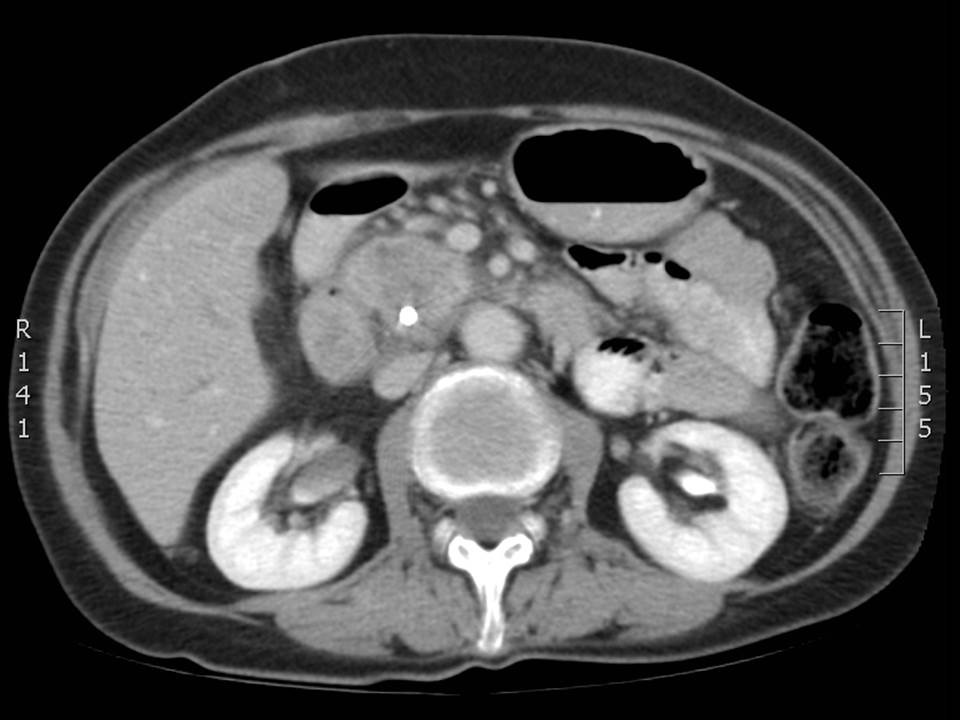Abstract
Introduction: Clinical study evaluating the impact of intraoperative radiofrequency ablation in pancreatic cancer.
Methods: Patients with histologically proved pancreatic cancer were included. Two groups were defined. In the RFA group (n=24) intraoperative RFA of the pancreatic tumour was performed. In the control group (n=24) only the bypass procedure was indicated (gastroenteric and hepaticojejunal anastomosis). No patient received neoadjuvant chemotherapy. Three-month morbidity and mortality, overall survival, quality of life, pain relief and radiological response were studied.
Results: Overall three-month morbidity and mortality were 41.7% and 8.3%, respectively. RFA related morbidity and mortality reached 16.6% and 8.3%, respectively. The overall median survival time was 9.9 and 8.3 months in the RFA group and in the control group, respectively. The survival difference was not of statistical significance (p=0.758). QoL improvement after RFA was not proved. There was no statistically significant analgesic effect of RFA. Postoperative CT scan assessed as per RECIST criteria displayed progressive disease, stable disease, partial response and complete response in 41.6%, 45.8%, 8.3% and 0% cases, respectively.
Conclusion: Intraoperative RFA of locally advanced and metastatic pancreatic cancer is a feasible palliative method. A survival benefit of this method remains doubtful, even though some positive results have been achieved in patients with localized, well-differentiated tumours. Although RFA was not associated with any impairment of the quality of life, no convincing evidence of a positive impact thereof on QoL was shown, either, during the three-month postoperative period. Pain relief was not achieved during the first 3 months after RFA.

